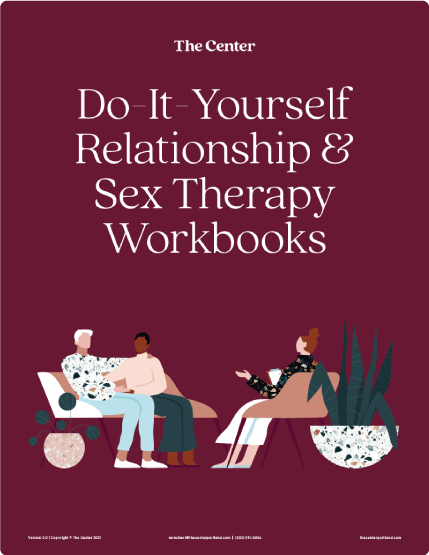Imagine you’re sitting on the couch with your partner – the silence between you is way louder than any argument you’ve had. You used to talk for hours, about your dreams, fears, and silly inside jokes. Now, it seems like every conversation ends in frustration and hurt feelings.
You might even feel like all you ever do is fight.
Over time, the easy communication that was once easy is replaced with misunderstandings, resentment, and conflict. But it doesn’t have to be this way.
You know and understand how important communication is in your relationship.
It’s the foundation of any successful relationship, but it’s often where folks struggle the most. Whether it’s a minor misunderstanding or a major conflict, how you and your partner communicate can make all the difference in your emotional connection and overall happiness.
So, let’s talk about 10 steps you can take to better your communication in your relationship:
1. Active Listening
Active listening means fully concentrating, understanding, responding, and then remembering what your partner says. To actively listen to your partner means that you are not only hearing what they say – you’re understanding the meaning behind what they’re saying.
A simple way to practice active listening is to summarize what your partner said BEFORE you respond.
2. Use “I” Statements
How many arguments have started with “you always….”?!
Instead of pointing fingers, try to express your feelings and needs using “I” statements.
For example, say “I feel upset when…” instead of “You do x, y, z…”.
This approach minimizes defensiveness and helps communication stay constructive instead of destructive.
3. Plan Regular Check-Ins
Set aside dedicated time each week to discuss how you’re doing and your relationship.
Whether it’s a regular date night or simply just sitting down on the couch to talk, having a check-in provides a consistent safe space to address issues before they become a bigger problem.
4. Pay Attention to Nonverbal Communication
Communication isn’t just verbal.
According to communication experts, 70-90% of communication is non-verbal. That means that only 10-30% of what you say is actually coming from the words you say.
What do your partner’s body language, facial expressions, and tone of voice tell you?
These nonverbal cues can reveal a lot about their true feelings and help you respond more empathetically.
5. Patience, Patience, Patience
Effective communication means you have to be patient.
Give your partner the space and time to express themselves fully without interruption. This shows that you value their perspective, even if you disagree with their point of view.
6. Try to Stay Calm During Conflicts
You’re going to have disagreements. They are inevitable. But how you handle them makes all the difference.
Try to keep calm and focus on resolving the issue rather than winning the argument.
Take a break if emotions get too high. Simply stating that you need a few minutes to settle can work wonders.
Then, revisit the conversation when everyone is calm again.
7. There is Power in Affirmations!
How easy is it to forget to mention all the things you love and appreciate about your partner?
For all the times you criticize or point out what’s wrong, remember to talk about the good things more.
Acknowledge your partner’s efforts and express appreciation for the little things they do.
Say thank you for the way they make you coffee every day. Or express your appreciation for how hard they work.
This positive reinforcement encourages more of the same behavior.
8. Seek to Understand Before Being Understood
What would happen if you eliminated making assumptions in your relationship? Assumptions happen when you don’t fully understand your partner’s perspective.
Make it a goal to understand your partner’s perspective BEFORE trying to get them to understand yours. This will help you both feel validated and heard.
9. Set Clear Boundaries and Respect Them
Healthy relationships require clear boundaries. Discuss and set boundaries around communication, and then for the hard part… make sure to respect them.
This includes agreeing on when and how to address conflicts and making sure all partners feel comfortable and safe during discussions.
- Decide the time of day that’s best to have tricky conversations.
- Decide what you’re going to do if you need to take a break in the middle of a disagreement.
10. It’s Perfectly OKAY to Need More Support.
Sometimes, despite best efforts, you will still struggle to communicate effectively.
Through couples counseling, you can learn valuable tools and techniques tailored to your unique relationship.
Couples counselors can help you identify underlying issues and guide you toward healthier communication patterns.
Remember, effective communication is a skill that can be learned and refined with practice and patience. Don’t hesitate to seek professional help if you need it – your relationship is worth the investment.
Now, go and try out at least 2 of these steps with your partner. See how your relationship benefits!
Ready to Transform Your Relationship?
It’s time to stop fighting.
Here at The Center for Couples and Sex Therapy, we specialize in helping couples enhance their communication and emotional connection. Whether you’re dealing with communication issues, low sexual desire, sexual trauma recovery, or any other relationship challenges, our relationship therapists are here to support you.
We understand the complexities of relationships and are dedicated to helping you build a fulfilling, loving connection.
We’re ready to help you end the conflict and build a relationship you love!
Schedule a consult with us today and take the first step towards better communication and a deeper connection.







